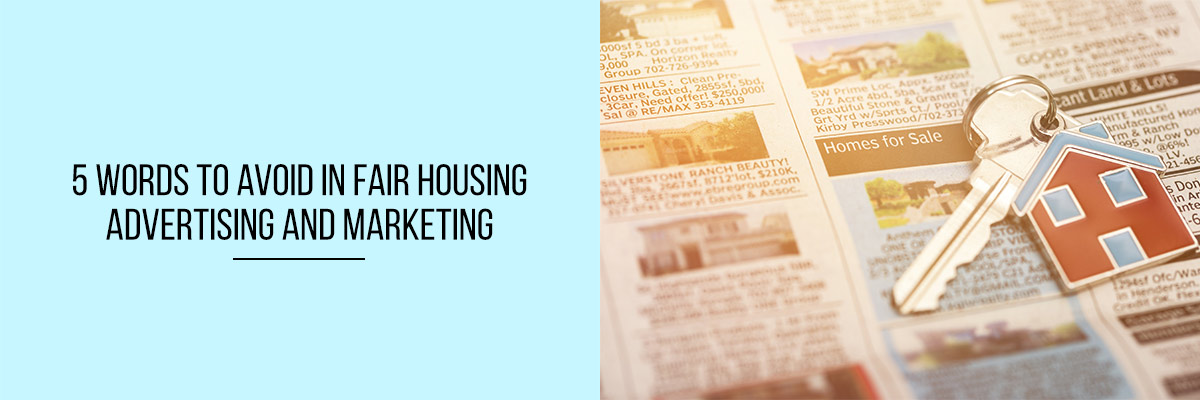In the housing industry, it is essential to advertise your day-to-day business. Promoting new homes and properties available for sale and renting is the only way housing agencies can attract tenants or potential buyers.
But it’s not that simple. Government has laws in rule including the Fair Housing Act which sets standards for housing agencies in not only the selection of tenants but also in advertising and marketing. The Fair Housing Act limits the terms and conditions that landlords can set to advertise for a resident. And if these housing advertisements are not compliant with fair housing, penalties will follow. Here are 5 common words that you need to avoid in fair housing advertising:



1. Racial Discrimination
Discrimination of all sorts is prohibited and strictly punishable under Fair Housing laws, including racial discrimination. Therefore, any word that shows discriminatory preferences must be avoided. This includes limitations or special mentions based on someone’s race, color, or ethnicity.
Remember, you must avoid such words for describing the community or neighborhood as well. Some such examples of words to avoid are; white/black community, Asian neighborhood, etc.
2. Religious terms
The Fair Housing Act forbids landlords and housing agencies to discriminate against potential tenants based on their religious status. Now, this law applies to the advertising and marketing departments as well. Advertisements for Fair Housing should not have any reference to a specific religion.
In some areas, the name of the locality, the road, the landmark, or the locality might be mentioned which has already existing reference to a single religion. In such cases, a non-discriminatory disclaimer is mandatory to avoid misunderstandings.
3. Familial Status
Familial Status limits the mention of members or family composition requirements for a specific property. Housing agencies must avoid mentioning preferences for numbers, the age of couples, and also the age of the children a family has.
4. Sexual Preferences
Although all sections of the Fair Housing Act are serious laws and punishable if violated, sexual discrimination has been rising lately and is in the limelight. Under Fair Housing laws, sexual discrimination is strictly prohibited.
Any terms that show preferences for sex, gender, sexual orientation, etc must be strictly prohibited. Some examples of such statements or words that should be avoided are as follows:
- Property for Single boys
- Family rooms available, etc.
5. Disabled person
Make sure you avoid any indications that discriminate based on someone’s disability. Some terms that describe the conduct required of the residents are acceptable but words like (no wheelchair/facility for handicaps) are not acceptable and will be considered an unlawful act.
Final Words
It’s important for all housing agencies to stay compliant with housing laws. As the laws keep changing from time to time, and in different states, it’s critical for fair housing agents to always stay updated with these laws so as to avoid any legal pitfalls.


